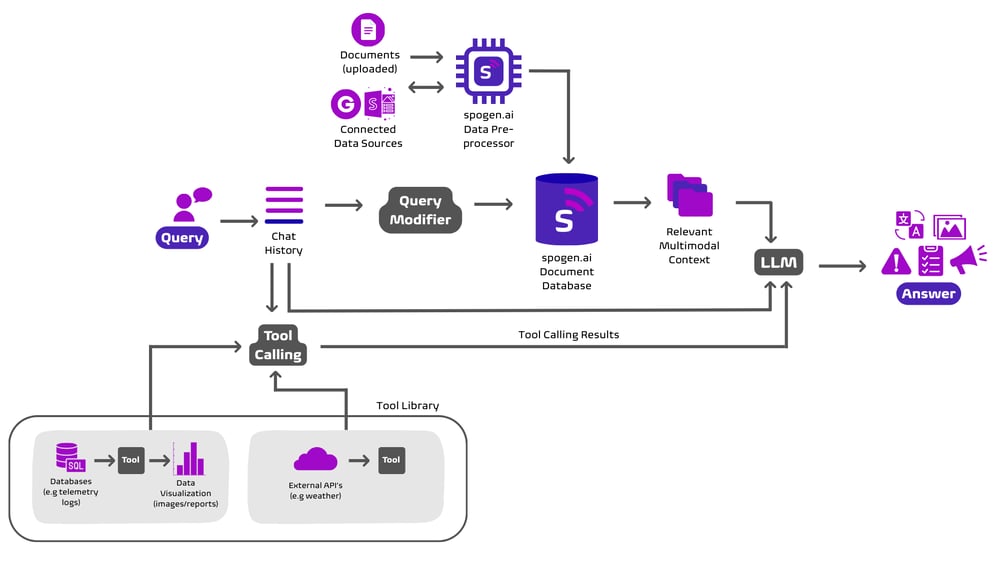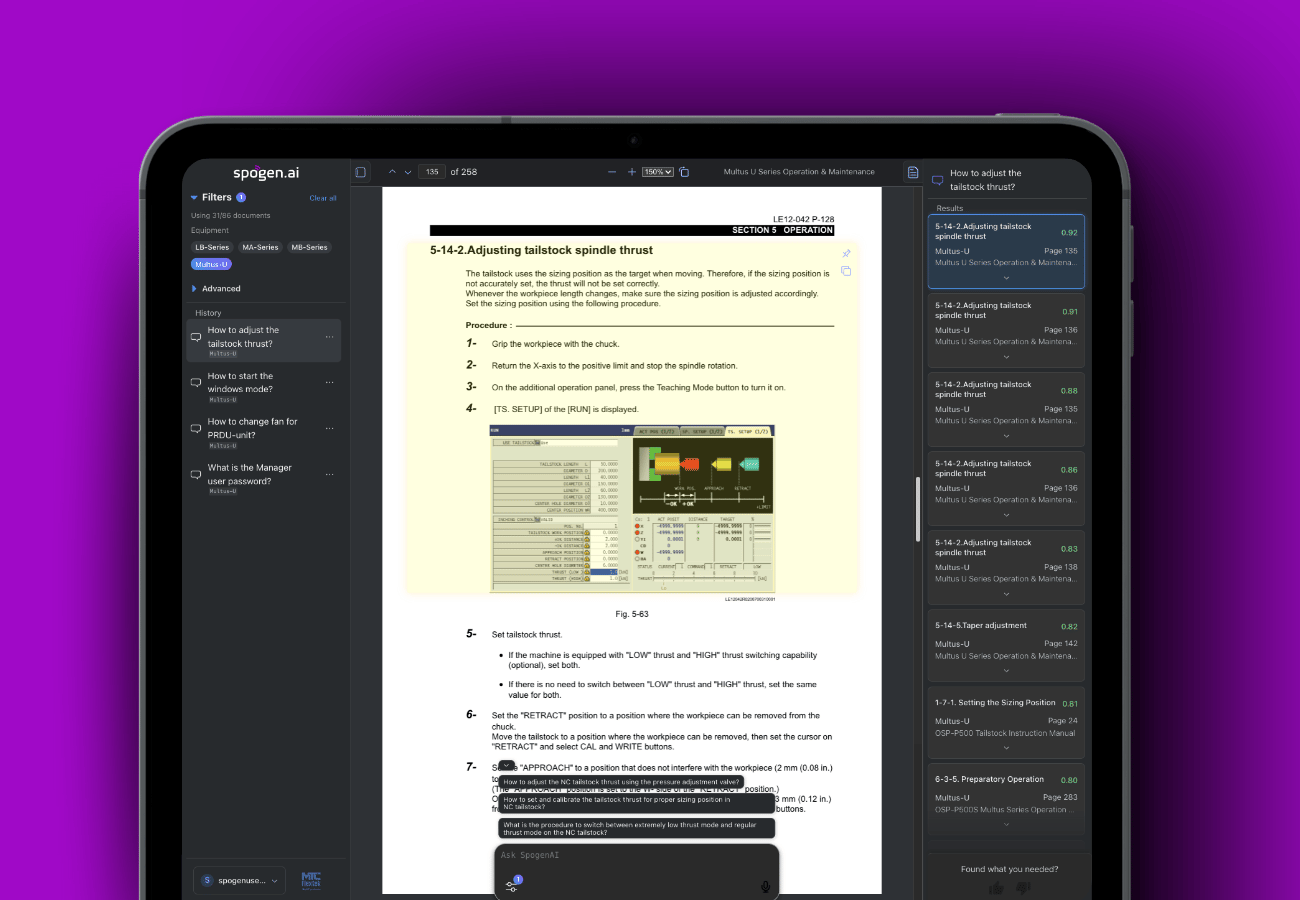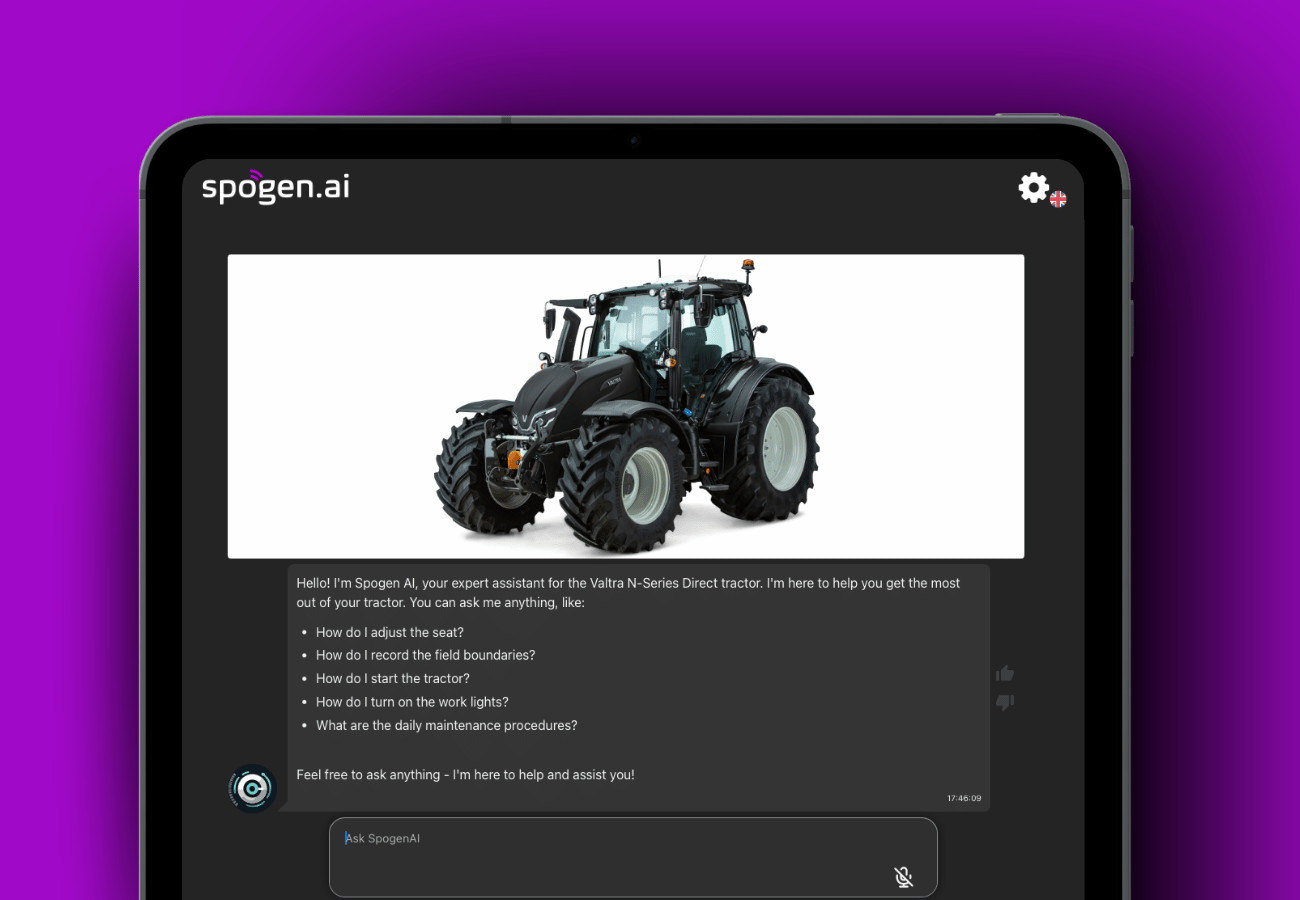Technology
Built for Complexity.
Designed for Real-World Use.
Why Purpose-Built Solutions Matter
Rising downtime, breakdowns, and training costs demand more than generic AI solutions. Our purpose-built technology handles the complexity and scale of technical documentation. Meanwhile, building in-house solutions is a huge undertaking, while generic tools lack the precision needed.
Have Questions How It Works?
Our technology is built to handle the complexity of advanced machinery documentation with precision and context. For deeper technical details, architecture insights, and answers to common questions, check out our Technical FAQ.
Essential Capabilities of an AI Assistant for Machinery
Traditional search can’t handle the complexity of operator guides and manuals. To truly work, an AI solution needs to intelligently retrieve and present:
Images, diagrams and tables in the operator’s language, with correct titles and legends
Warnings and safety notices to prevent accidents and reduce liability
Step-by-step procedures that are easy to follow, with optional task tracking
Error codes and part numbers, which basic vector search often fails to find
Industry-specific terminology so the assistant adapts to the industry, not the other way around
Machine-specific options and add-ons to reflect the unique specs of each machine
External links to videos, catalogs, and other resources to enrich the user experience
Core Capabilities: Multilingual, Real-Time, and Context-Aware Assistance
Our solutions are designed for real-world use across borders, machines, and conditions.
Multilingual by Design: Users want to interact in their own natural language. The assistant must also understand technical and industry-specific terminology.
Real-Time Guidance: Whether it’s an operator in the cab or a technician on the phone, answers need to be instant, actionable and clear, including the image captions.
Context-Aware Interaction: The assistant must understand ´context to deliver only what’s relevant in the moment.
Device-Agnostic by Default: The interface must work seamlessly across phones, tablets, desktop apps, and the Human-Machine Interface (HMI)

Technical Architecture: How spogen.ai Delivers Accurate Answers
The spogen.ai system processes technical documentation, machine data, and external integrations through a structured pipeline. Text, diagrams, tables, and images are ingested and vectorized into a specialized database, enriched with telemetry streams and API-driven data.
When a user submits a query, a context-aware modifier refines it for relevance. The system retrieves the most relevant multimodal data (text, visuals, integrations) and passes it to the LLM, which produces accurate, source-grounded answers. Safeguards ensure reliability by flagging gaps instead of generating unsupported output.
Key Differentiators -Why spogen.ai Excels Beyond Generic AI
Our solution is the result of deep optimization for the specific task at hand. The effectiveness and accuracy of the assistants boil down to these five key focus areas.
Effective chunking: We apply a strategic, purpose-built approach to breaking down content, essential for handling complex multimodal elements like images, tables, and diagrams effectively.
Relational data mapping: Our system maintains context by mapping and maintaining connections between related data chunks.
Optimized prompts: We significantly improve accuracy and relevance with use-case- and industry-specific prompts.
Latency management: The system ensures low response times, enabling effective multi-step workflows.
Observability and iteration: The system is continuously monitored through user feedback and automated quality checks. It is also capable of generating reports on frequently asked questions, providing valuable insights for trainers, documentation teams, and R&D.
Optimizing Precision and Effciency in Sophisticated Machinery
Our solution is purpose-built to tackle the unique complexity of heavy machinery. Our AI assistants deliver accurate, real-time guidance that's multilingual, context-aware, and can be integrated seamlessly with any smart device. By combining advanced technical architecture with deep industry knowledge, we help reduce downtime, improve safety, and streamline onboarding and training. Ultimately, we’re transforming how operators and technicians interact with their machines.
Ready to explore how spogen.ai can elevate your operations?
Get acquainted with our Smart Assistant and Tech Assistant to find the perfect fit for your needs.
The Latest from Our Blog
4 min read
spogen.ai’s 2025: A Journey From Pilots to Global Recognition
spogen.ai: Dec 23, 2025
4 min read
Build or Buy: Why OEM Leaders Choose Productized AI Assistants
spogen.ai: Dec 12, 2025


